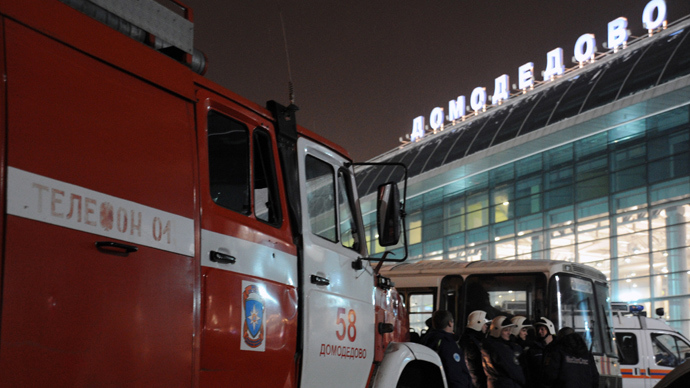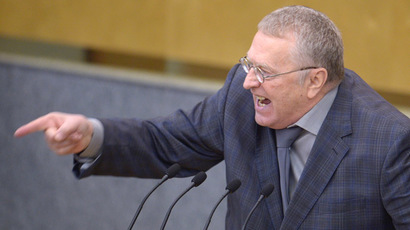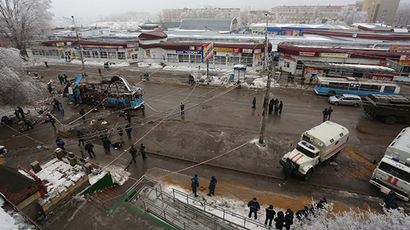Senator calls to make allowing terrorism a separate criminal offense

An Upper House legislator has suggested amending part of the criminal code concerning criminal negligence introducing tougher punishment for allowing terrorist acts to take place.
Senator Konstantin Dobrynin (Arkhangelsk Region), who is acting as the main sponsor of the bill, told the Interfax news agency that it would concern officials whose failure to fully execute their duties creates conditions for the carrying out of a terrorist attack.
Dobrynin is the deputy head of the Federation Council’s committee for constitutional law, and according to him appeasement of terrorism must be punished with prison terms of between seven and fifteen years, and also a lifetime ban on holding official posts, as well as stripping of military rank and of state decorations.
The senator said that additional measures could be taken to introduce responsibility for law enforcers who create “favorable conditions for terrorists”, claiming that in many cases the attacks would not be possible if not for a reckless attitude by those in charge of public order.
In order to narrow the scope of the proposed bill, Russian law should include the definition of public duty, Dobrynin adds.“If we, the lawmakers, can help the struggle against terrorism with concrete legislative steps and not with vivid and expressive statements, let us do it together,” he concluded.
Presently, the Russian criminal code defines criminal negligence as an official’s failure to execute his or hers duties or execute them in an insufficient manner as a result of a reckless attitude to one’s responsibilities. If the offence leads to significant material damage to state or citizens it is punished with fines, compulsory communal service or up to two months behind bars. If negligence resulted in loss of life or grievous bodily harm the punishment can be up to five years in prison. Death of two persons or more carries punishment of up to seven years.
Russian lawmakers have put forward new suggestions for counter-terrorist laws and measures after the two bomb blasts in late December last year. Populist nationalist party LDPR was the most active, and its initiatives included a ban on suspicious clothing and allowing police officers to shoot people who refuse to be searched in the street. The head of the party said that security services must introduce total wiretapping in regions of South Russia and the Northern Caucasus, and one LDPR Lower House MP again called on the President to lift the moratorium on the death penalty for convicted terrorists.
The most recent tightening of the counterterrorist laws took place after a deadly bomb blast in Volgograd in South Russia in October last year. It included the law ordering the relatives of terrorists to compensate for the damages caused by the attacks.














